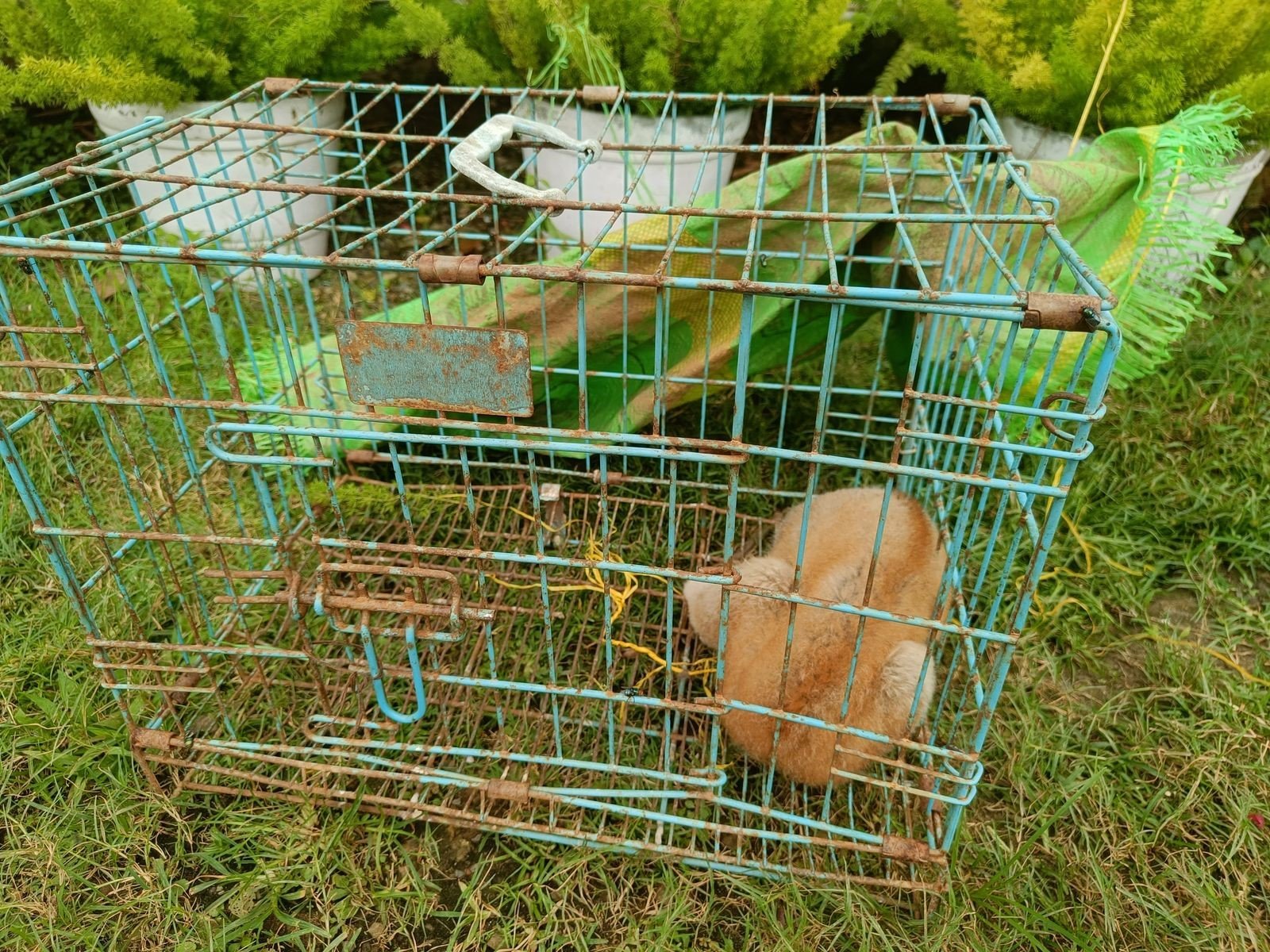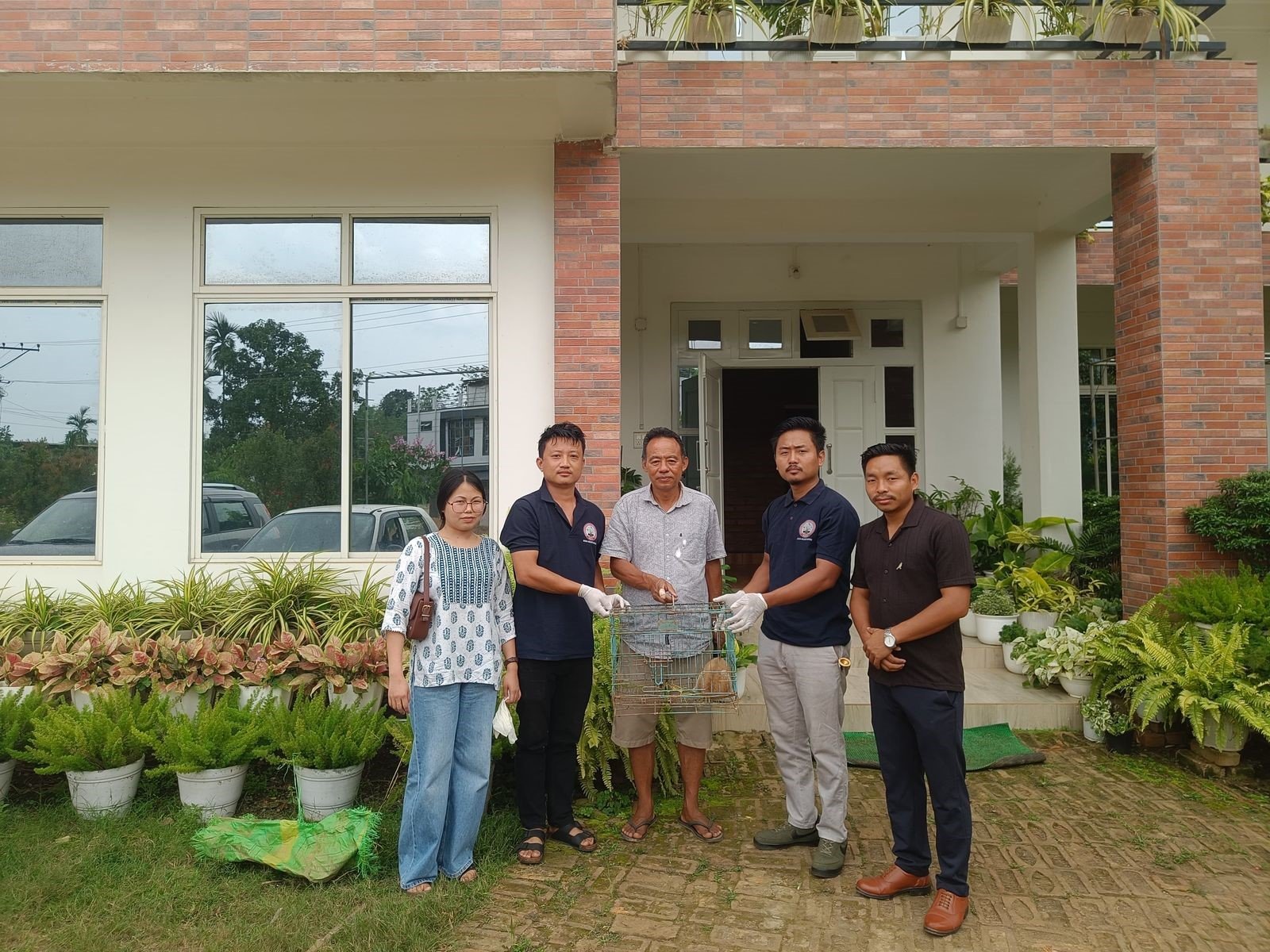The Eco Warriors Nagaland Team along with the help of local informants rescued a Slow Loris and an Asian Leaf Turtle from two separate locations which were immediately handed over to the Nagaland Zoological Park, NZP.
According to a press release by the Eco Warriors Nagaland Team, the Asian Leaf Turtle (Cyclemys Dentata) was sighted at Shitovi Village under Chümoukedima District, while the Slow Loris was sighted at Indisen Village, Dimapur.
Acting promptly on receiving information, the Team Eco Warriors Nagaland rushed to both locations with coordination with the Zoo officials and rescued the animals which were then handed over to the Nagaland Zoological Park immediately for proper rehabilitation.
“While most sections of people are not aware of such species, Eco Warriors team wants to spread awareness at the grassroot level with the idea to bridge the gap of conservation and instilling wildlife conservation consciousness among the people,” stated the press release.
It informed that the Asian Leaf Turtles are found in the freshwater habitats of northeastern India, Bangladesh, Bhutan, and Myanmar. In India, they are mainly found in the Brahmaputra River basin, particularly in the states of Assam, Arunachal Pradesh, and Meghalaya. They prefer slow-moving or stagnant water bodies like ponds, lakes, and small streams with plenty of aquatic vegetation.

Download Nagaland Tribune app on Google Play

The Asian Leaf Turtle is listed as Endangered on the IUCN Red List due to habitat loss, overexploitation for the pet trade, and other anthropogenic activities. The species is protected under the Wildlife Protection Act of India, and various conservation measures have been taken to conserve this species in the wild. Some of the steps being taken include habitat restoration, enforcement of wildlife laws, and awareness programs to discourage the trade of these turtles as pets.

The Slow Lorises are found exclusively in South and Southeast Asia. Considered the world’s only venomous primates, they are arboreal—meaning they live in trees—and can be spotted curling up to sleep in branches or using vines and leaves to get around. They typically only come down to the forest floor when they need to defecate.
These small, nocturnal creatures are characterised by their large, round eyes, which are adapted for night vision. They have compact bodies, short snouts, dense fur, and distinctive facial markings. Slow lorises are skilled hunters; they use their slow and deliberate movements to catch prey like insects and small vertebrates. They also have a specialised toothcomb—a unique structure created by their bottom front teeth—that they use for grooming and extracting gum from trees. Slow lorises are generally solitary and territorial animals. They have the ability to stay motionless for long periods, which is how they got their name—observers noted how slow they were compared to other forest-dwelling animals.

The Eco Warriors team expressed its sincere appreciation to the informants for instilling conservation initiative to the people, and making sure that the animals reached their safe home for rehabilitation. The team also thanked all the individuals who were actively involved in the rescue effort of the two animals.
Eco Warriors Nagaland is a registered Organization aimed at conserving wildlife and Environment in Nagaland through voluntary collaborations with other organisations and institutions across the state.
For more queries, the organisation can be reached at:
Instagram: @eco_warriors_nagaland
EmaiI ID: ecowarriors021@gmail.com
Facebook: Eco Warriors Nagaland

